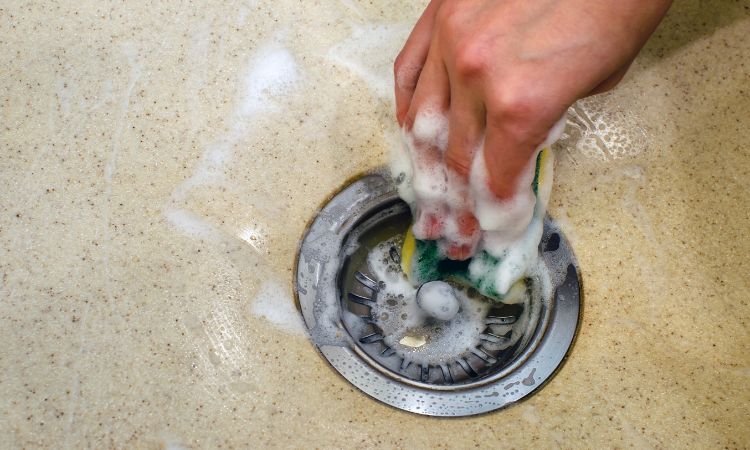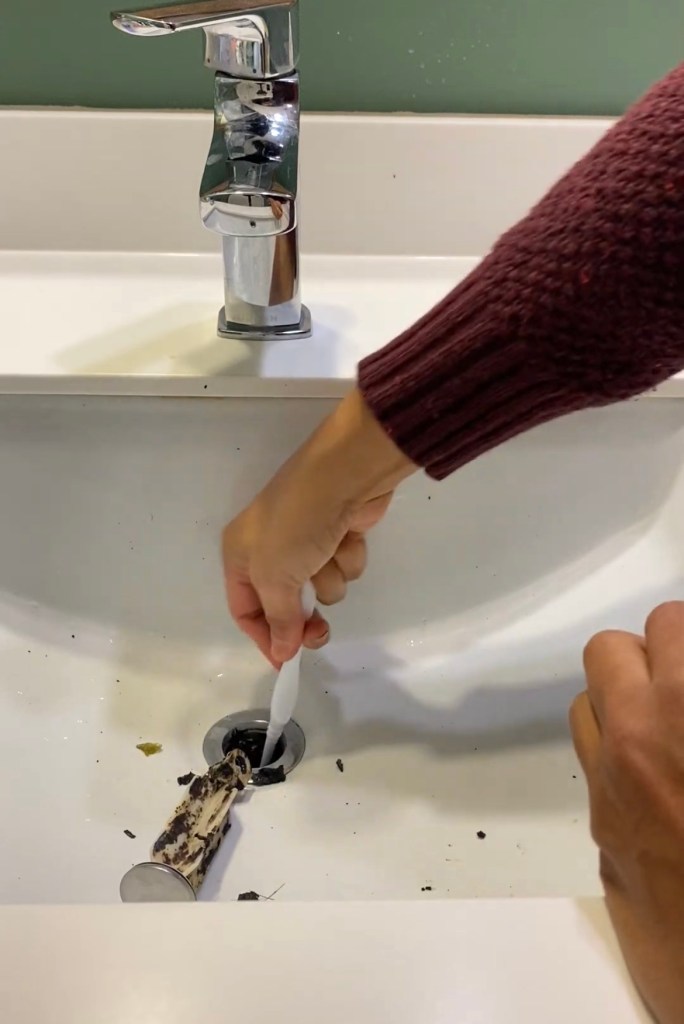Straightforward Methods To Fix A Slow-Draining Sink
Straightforward Methods To Fix A Slow-Draining Sink
Blog Article
What're your ideas concerning How to Fix a Slow Draining Sink?

Intro
We have actually all been there: You're brushing your teeth or cleaning your hands, and you see the water merging in the sink. Rather than rapidly swirling down the drain, it sticks around, turning your once-refreshing morning regimen into a small overload scene. A slow-draining sink isn't simply bothersome; it's frequently a sign of bigger pipes problems hiding beneath the surface area. The good news is that most slow-draining sinks can be taken care of with a little know-how, a couple of fundamental devices, and some patience. Prepared to tackle this task head-on? Allow's roll up our sleeves and dive right in.
Recognizing the Reasons For a Slow-Draining Sink
Prior to you start poking around in your pipelines, it helps to understand what may be causing the slowdown. Understanding the source makes it less complicated to choose the best repair.
Common Perpetrators Behind Slow Drain
So, what's obstructing points up? Commonly, it's a combination of day-to-day particles-- assume hair, soap scum, toothpaste deposit, and leftover food particles. Over time, these little bits gather and hold on to the pipeline wall surfaces, slowly narrowing the passage and making it harder for water to go through. Sometimes, natural resource from hard water can also include in the crud, producing the best storm for persistent clogs.
When is it Time to Do Something About It?
If you discover the water draining pipes slower than typical, it's an excellent idea to step in sooner instead of later. Waiting also long could cause finish blockages, unpleasant odors, or perhaps pipeline damage. If the water takes more than a couple of seconds to clean out after switching off the faucet, consider it a red flag and prepare to put on your DIY hat.
Devices and Products You'll Require
The right devices make all the distinction. Luckily, you will not need a fully equipped plumber's van to get the job done.
Necessary Tools for DIY Services
A plunger is your best beginning factor. A little, sink-sized plunger produces suction that can dislodge minor clogs. For even more persistent obstructions, a drainpipe snake (in some cases called a plumbing technician's auger) works marvels. A set of gloves, a flashlight, and perhaps a pair of safety goggles are additionally helpful.
Suggested Cleaning Solutions
Mild recipe soap and hot water can help break down greasy build-up. A mix of baking soft drink and vinegar is a tried and true home remedy, and chemical cleansers offer a more eco-friendly strategy. Maintain chemical drain cleansers as a last resort, as they can be severe on your pipes.
Safety And Security First: Safety Measures and Preparations
Prior to you launch into unclogging setting, consider safety. You're taking care of potentially unclean water and particles, so slip on a set of handwear covers. If you're utilizing chemical cleansers, make sure the area is well-ventilated and follow the guidelines on the tag.
Protective Equipment and Office Setup
Set some old towels or cloths around the sink area to catch splashes. Remove any products that might get in your means, like soap dispensers or tooth brush holders. Ensure you have excellent lights-- get a flashlight if needed.
Step-by-Step Guide to Taking Care Of a Slow-Draining Sink
Now, let's enter into the nitty-gritty. This detailed process will direct you with basic methods to recover your sink's drain.
Step 1: Remove and Clean the Stopper
Usually, the stopper (that tiny plug you lower to obstruct water) is the initial culprit. Remove it meticulously and wipe any type of hair or substance trapped around its base. Rinse it thoroughly before placing it back in position.
Action 2: Make Use Of a Plunger to Remove Particles
Got that bettor ready? Placement it over the drain and give it a few company pumps. The concept is to create suction that can loosen any type of obstruction. If you see littles debris drifting up, you're on the ideal track.
Action 3: Attempt a Drain Serpent or Wire Hanger
If the bettor does not suffice, it's time to draw out the drain snake. Gently feed it right into the drain and spin as you go. You might really feel some resistance-- that's likely the blockage. Maintain twisting and pulling till you eliminate the blockage. If you don't have a drain snake, an aligned cable hanger can operate in a pinch.
Step 4: Apply a Do It Yourself Drain Cleanser
A natural cleaner made from baking soft drink and vinegar can break down recurring grime. Put half a mug of cooking soft drink into the drainpipe, followed by half a mug of vinegar. Allow it fizz for about 15 mins, then flush with hot water. This chain reaction usually does marvels for minor clogs.
Tip 5: Rebuild and Evaluate the Sink
Placed every little thing back together and run the tap. Does the water now swirl down the drain at a commendable speed? If yes, provide on your own a pat on the back. If not, don't anguish-- there are still a couple of even more dress up your sleeve.
Alternative Techniques for Stubborn Clogs
Not all clogs are produced equivalent. If your sink still refuses to comply, consider these alternate services.
Baking Soda and Vinegar Technique
We already discussed this, yet it deserves keeping in mind again. This gentle, environment-friendly approach is more secure than chemical cleansers and usually quite reliable.
Chemical Drainpipe Cleaners
Enzyme-based cleaners utilize all-natural germs to digest organic matter. They're a superb option if you're seeking to prevent extreme chemicals. Just bear in mind, they might take a bit longer to work their magic.
Chemical Drain Cleaners: Benefits And Drawbacks
Chemical cleansers can blast via hard clogs quickly, yet they're not without disadvantages. They can produce warmth and fumes, damage pipelines if made use of excessively, and position environmental threats. Utilize them moderately, and constantly follow the directions carefully.
Preventive Measures to Keep Your Sink Flowing
Avoidance is the most effective treatment. By embracing a couple of basic routines, you can keep your sink from decreasing to begin with.
Regular Cleansing Routines
Wipe down the sink container and component area frequently. Remove hair or food particles prior to they have an opportunity to wash down the drain.
Avoiding Damaging Substances Down the Drain
Hesitate before unloading coffee premises, grease, or fibrous vegetable scraps down the sink. These perpetrators hold on to pipeline wall surfaces, creating obstructions in time.
Regular Maintenance Checks
Set up a quick regular monthly inspection. Run hot water with the sink for a couple of minutes, taking notice of the circulation. If it seems sluggish, act fast before it becomes a full-blown clog.
When to Call a Professional Plumbing Technician
Occasionally, despite how hard you attempt, that block just won't budge. That's when it's time to bring in the pros.
Signs That Indicate a Much More Major Concern
If your sink drains pipes gradually regardless of multiple efforts, or if you notice water supporting in other components (like your shower or bathroom), you might have a more serious pipes issue prowling deeper in the system.
Balancing Do It Yourself Initiatives with Specialist Aid
While DIY can conserve you money and supply a feeling of achievement, there's no embarassment in calling an expert. An expert plumbing professional can evaluate your entire plumbing arrangement, making sure there's no underlying damages or lasting issue that can cost you a lot more in the future.
Contrasting Costs and Long-Term Solutions
Prior to making a decision, consider the big picture. A low-cost, quick fix may address the trouble briefly, yet purchasing a more irreversible service can conserve you cash and stress over time.
Considering the Expenditures of Do It Yourself vs. Expert Fixes
Do it yourself solutions frequently cost little greater than the cost of a plunger or a bottle of baking soda. Professional solutions, on the other hand, come with a cost however may protect against repeated issues and expensive repair work later.
Buying Quality Fixtures and Upgrades
If your sink's design adds to frequent blockages, it could be worth upgrading to higher-quality components or altering the plumbing format. Consider this a financial investment in your home's capability and comfort.
Final thought
A slow-draining sink can seem like a small irritability, but it's usually a sign that your plumbing needs a little tender loving care. By understanding the root causes, using the right devices and strategies, and committing to easy preventive measures, you can keep your sink streaming openly. And when all else fails, never be reluctant to contact a specialist-- your home's pipes deserves the investment in care and maintenance.
Three Common Ways to Fix a Slow Drain
Baking Soda Method
Boil a full pot of water. Measure out cup of baking soda and pour it down the drain. Then take cup of the magical cleansing substance known as white vinegar and drop that down there too. Allow the mixture to fizz in the drain for five minutes as the vinegar and baking soda combine. Now dump in that whole pot of boiling water. This combination of cleaning substances should clear out anything that is causing your sink to drain slowly. If it doesn t...
Zip-It
If the baking soda method doesn t clear out your drain, it may be because a significant amount of hair and/or other debris has collected there and you need to remove it. Purchase a Zip-It tool at any home improvement or hardware store and insert it into your drain. It will catch any collected hair or debris that s blocking the flow of water. Pull it out. If it s got a big clump of hair, etc. on the end, you ve probably got your culprit.
Drain Cleaner
If these methods don t work, there is the standard drain cleaner that you can also buy in a hardware store or even your local grocery store. It s better if you can use a household solution, but these drain cleaners often work in a pinch. They re very simple to use. You generally just dump them in your drain and wait. If even this method is not effective, it may be time to call the plumber.
https://www.mrrooter.com/oneida/about-us/blog/2017/july/three-common-ways-to-fix-a-slow-drain/

I was shown that write-up about from a buddy on a different web property. Those who enjoyed our post if you please make sure you remember to share it. We cherish your readership.
Call Today Report this page